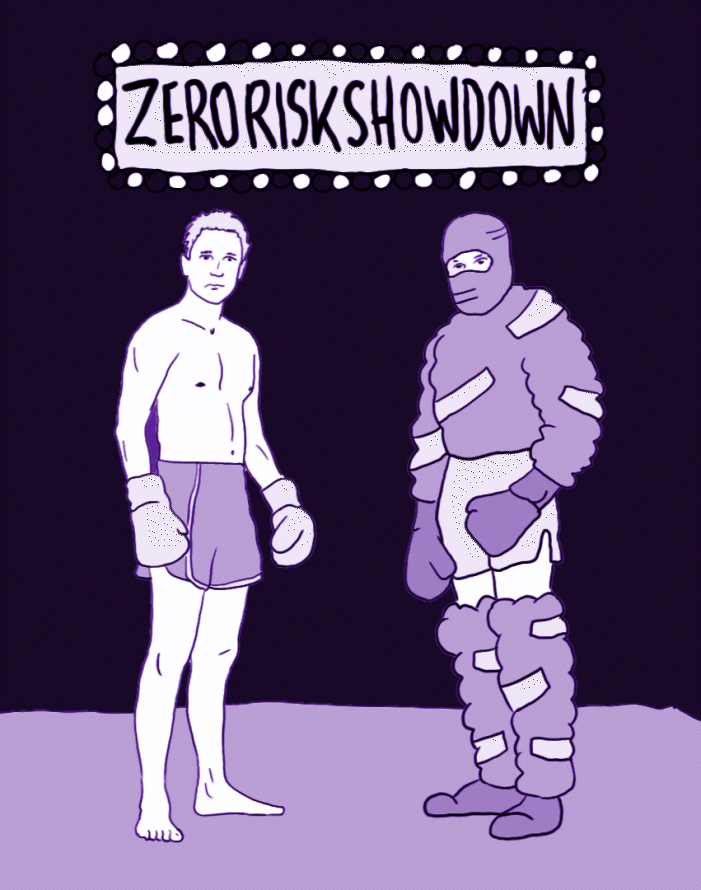The Why #90 Why do I keep buying new versions of the same old clothes?
Question submitted by Carlos, Glen Waverley
This time it’ll be different. New vibe, new look, new you!
Those skinny jeans, fitted tees and no-show socks are about to make way for a little bit of 2024 flavoured fashion. The shops are open, the sales are on and you’re ready for something fresher than fresh! Or so you told yourself, right before walking out of the shops 15 minutes later with a fetching black t-shirt and a pair of sensibly fitting jeans, that will look right at home in your closet alongside 30 other fetching black t-shirts and 11 other pairs of sensibly fitting jeans.
As the proud owner of well over 30 black tees and more pairs of Nike dunk SBs than I would ever admit, I’m right there with you Carlos. And while it makes perfectly good sense in my head, it’s understandable that others would wonder why on earth we’d bother shopping at all…
Zero Risk Bias
Zero Risk Bias describes our irrationally strong preference for situations that have absolute certainty. Any reduction in risk is good, but the complete removal of risk is disproportionally good, as it lets people ‘take something off their list’ of worries. Instead of having to calculate the optimal solution, something that would require a lot of time and energy, we opt for the choice with less effort and uncertainty.
Research conducted by Zeckhauser, cited by Kahneman & Tversky (1979), asked participants to imagine they were playing a game of Russian Roulette, with the option of paying for individual bullets to be removed from the cylinder of the gun.
What’s irrational, but also entirely unsurprising, is that participants were willing to pay far more to have the final bullet removed (cue certain life), than they were to have the third or fourth last bullet removed, even though the reduction in risk is identical for the removal of each bullet.
While reducing risk is always a good strategy, if we can remove it entirely (i.e. make something ‘zero risk’), we’ll enjoy disproportionate returns. It’s no wonder that risk eliminating sales techniques like the ‘money back guarantee’, the ‘free trial’ and the ‘post purchase price match’ have been around for as long as salespeople have. It’s also the reason why one more pair of skinny black jeans feels like such a good decision.
To make the most of Zero Risk Bias, Challenger Brands should look for ways to completely remove any risk associated with the product itself (‘certified organic’), the way the product is purchased (‘cancel anytime’) or the outcome that customers are using the product to create (‘perfect pancakes in minutes!’).
Behaviourally Yours,
PS If you missed the last edition, you can still check out why Netflix’s recommendations can sometimes feel so frustrating here.
Forwarded this? Subscribe to join thousands of others who receive The Why fortnightly.
Bad Decisions Podcast
To learn more about Behavioural Science, tune into the Bad Decisions podcast.
Got a question?
Is there something you’ve always wondered about?
Send it through to AskDan@hardhat.com.au
Want more?
Check out the latest piece in Dan’s fortnightly content series with Mumbrella, exploring why Challenger Brands should consider zeroing in on the untapped segments hiding in plain sight for sustainable long term growth.
The Why, The Book
If you’re a fan of having your curly questions answers, secure your copy of the newly released Amazon #1 Best Seller ‘The Why, The Book’ by Dan Monheit here.


